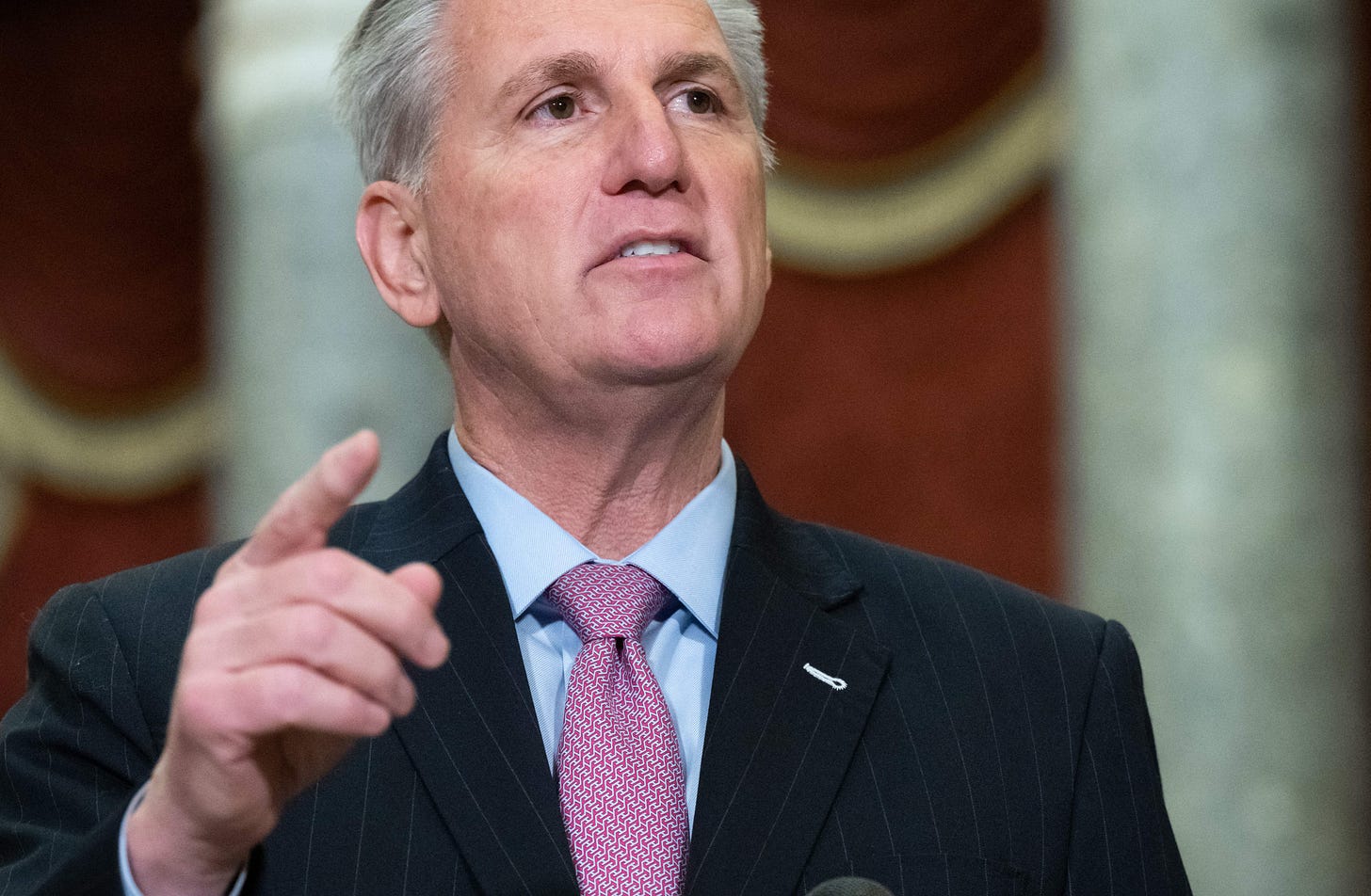The Right’s Economic Populism Is Stillborn
The dream may never die, but reality should dispel it





As I indicated at the top of my last post before Christmas, I will be writing just twice next week, for Wednesday and Friday.
The election of Donald Trump in 2016 created a serious problem for conservative intellectuals.
For decades, they had mostly been defending a lightly updated version of the “fusionism” first articulated in the early National Review by Frank Meyer. This ideological configuration advocated moral traditionalism on social issues and support for pro-business libertarianism when it came to taxes and regulations.
Trump blew that up during the 2016 campaign by vowing to leave Social Security and Medicare alone and to replace ObamaCare with an alternative that would provide affordable health care for all Americans. Then came talk of turning the GOP into a workers party that would combine hostility to immigration and free trade with an industrial policy to revive American manufacturing.
This appeared to make Trump a populist, not just in his crowd-pleasing attacks on the media and the elites who ran both parties, but also in what he hoped to accomplish in office. Yet aside from a dozen or so populist-inflected “reformicons” at various think tanks and magazines during the Obama administration, there was little intellectual infrastructure on the right to support such an agenda. It had to be built from scratch.
That’s how we got American Affairs. And American Compass. And Compact. And a newly populist-nationalist First Things. And The Postliberal Order. The GOP had changed. It aspired to help ordinary Americans, not just to make cut taxes for multi-millionaire donors. Yes, it would focus much more aggressively on waging and winning the culture war in both old and new ways. But it would also support, reform, and expand, rather than aim to shred, the safety net that supported American families in bad times and gave them a leg up in good ones. That’s what it would mean to vote for the Republican Party in the 2020s.
Republican Messaging
Yet something strange happened during the Trump administration. While these journals and think tanks were founded and began churning out erudite essays and white papers about ways to accomplish these new worker-friendly goals, the GOP attempted to eliminate the Affordable Care Act without proposing any alternative. The effort was defeated by a single vote. If the late Sen. John McCain had gone the other way, millions would have lost insurance coverage. Meanwhile, the bill that did get passed—the only major legislative accomplishment of the entire four years Trump held the presidency—was a massive corporate tax cut.
And now the Republicans have retaken the House with a narrow majority under a Democratic president. What are they promising to do? Pretty much exactly what the House Republicans did during the last Democratic presidency: Hold hearings designed to turn trivialities into scandals that will embarrass the man in the White House while revving up the GOP base; threaten default on the national debt as way to force cuts to entitlements and defense spending; and pass messaging bills.
A messaging bill is a piece of legislation that has no realistic chance of becoming law but serves as a means of declaring what a party would pass if it held the other chamber of Congress and/or the White House. Such bills are useful for keeping ideologically aligned activists excited and donor money flowing into coffers ahead of the next election coming down the pike.
Matt Yglesias’ first tweet at the top of this post gives you a sense of what the first of these bills aim to accomplish. It would slash funding for the Internal Revenue Service, which will make it much more difficult to conduct audits of potential tax cheats. The second would replace the income tax with a consumption tax, which would effectively amount to a huge tax cut for the wealthy and tax hike for the poor. Oh, and as the second tweet notes, the House Republicans also renamed a committee because the word “labor” supposedly smacks of Marxism and would insult America’s entrepreneurial makers on behalf of the takers.
The right’s policy-oriented economic populism, it would seem, is stillborn.
What the Party Wants
Many on the left will be inclined to respond to this statement with something like, No shit, Sherlock.
Keep reading with a 7-day free trial
Subscribe to Notes from the Middleground to keep reading this post and get 7 days of free access to the full post archives.


